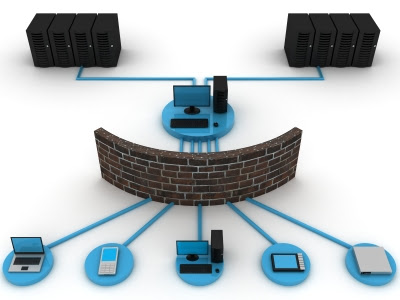 |
| Image Credit - Colocation America |
Everybody knows that Infrastructure as a Service (IaaS)
provides effective and simulated computing resources throughout the network
connection, usually via the internet. Just similar to the cloud computing
packages, IT infrastructure holds an
extensive range of cloud services that are used by most businesses. These infrastructure service packages vary
from company to company but normally include storage, servers, hardware,
security elements and system maintenance. The businesses that have limited
budgets find it difficult to buy and maintain their own hardware so they feel it interesting to attain the services
provided by the cloud service providers. Still it involves the risk so the
businesses must make sure about the services they are going to get prior to making any decision for hiring the services.
It is necessary to understand how the IT infrastructure services provider differentiates
between the IaaS, SaaS, DaaS and PaaS. Infrastructure as a Service varies from
the cloud services in a way that it offers hardware components so that the
businesses can generate their own
applications and cloud platforms. Organisations that implement cloud solutions
allow the suppliers in terms of the third party to provide the IT resources, thus
shifting the intricacies and expenditures to the cloud vendors. IT infrastructure is mainly used to provide
applications, preserving the data, hosting the websites on computer servers or
making a virtual data centre.
 |
| Image Credit - BCW |
Benefits of IT
Infrastructure Services
Reasonable Cost: Similar
to the other cloud packages, IaaS is offered through a subscription model to
assist the businesses to evade huge costs in
terms of periodic or annual payments. Getting the services of the IT infrastructure support helps to save
large amounts that may otherwise be incurred
while getting the hardware equipment. Before signing any contract, businesses
should always make sure that there are no hidden costs and that the partnership
with the service providers should be flexible.
Scalability: In order to update the hardware by means of purchase, the businesses should
initially assess the IT infrastructure so to know how much the business will
grow. The businesses must make sure that their resources can manage the
business growth and the hardware will be
appropriately utilised.
Flexibility: Usually,
most IT resources are judged through the internet connection. With IaaS, the
employees and the businesses are mobile. With online access and user login
details, the work can have greater flexibility. It can help the companies to
become geologically independent.
Consistency: The
infrastructure service providers offering managed services offer consistency and
greater reliability as compared to the on-premise
IT. This is so because the resources can
be spread across various platforms, multiple servers and data centres. In case, if the hardware components fail or the
data centres go offline, the company’s infrastructure won’t be affected.
No comments:
Post a Comment